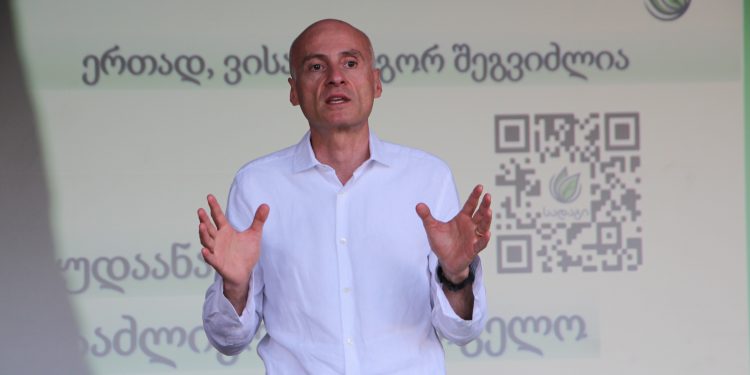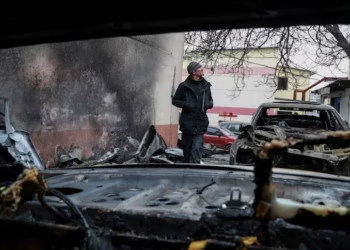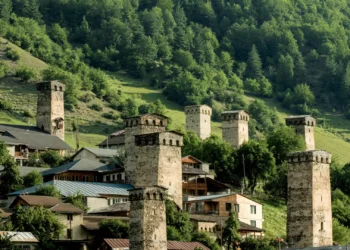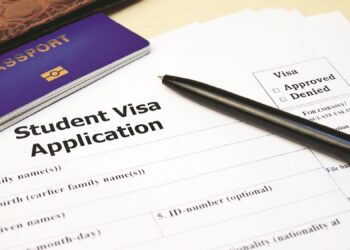Throughout 2023, GEORGIA TODAY shared the great work being done by the Sadagi team and the citizens and school groups it has inspired toward environmental protection in Georgia. To kick off 2024, we sat down with the man behind the organization, Nikoloz Shurgaia, to find out more about how Sadagi came about, what its goals are, and where inspiration comes from when facing the day-to-day challenges of caring for the environment.
“I started my career at a lemonade factory in 1992, while in the second year at Tbilisi State University,” he tells us. “In 1994, I moved into banking. A combination of luck and the absence of people with knowledge of contemporary banking in a recently liberated post-Soviet country helped me to quickly advance to managerial positions. In 2002, I left for the UK to do a two-year MBA Program at the London Business School, and after graduation, I worked in London, Moscow, Minsk, Baku and Tbilisi, mostly as bank CEOs and on bank supervisory boards.
“I remember my worries and wishful toasts about cleaning up the littered staircases from the mid-1990s. I have a memory of my granddad sorting out a pile of metal rods and wires, which I had failed to tackle. Seeing the cleanliness of Britain and internalizing the merits of wholeheartedly serving one’s community, and, importantly, ditching the stereotypes and falsehoods of Soviet propaganda, helped me to start a video blog about books and shortly thereafter Sadagi.”
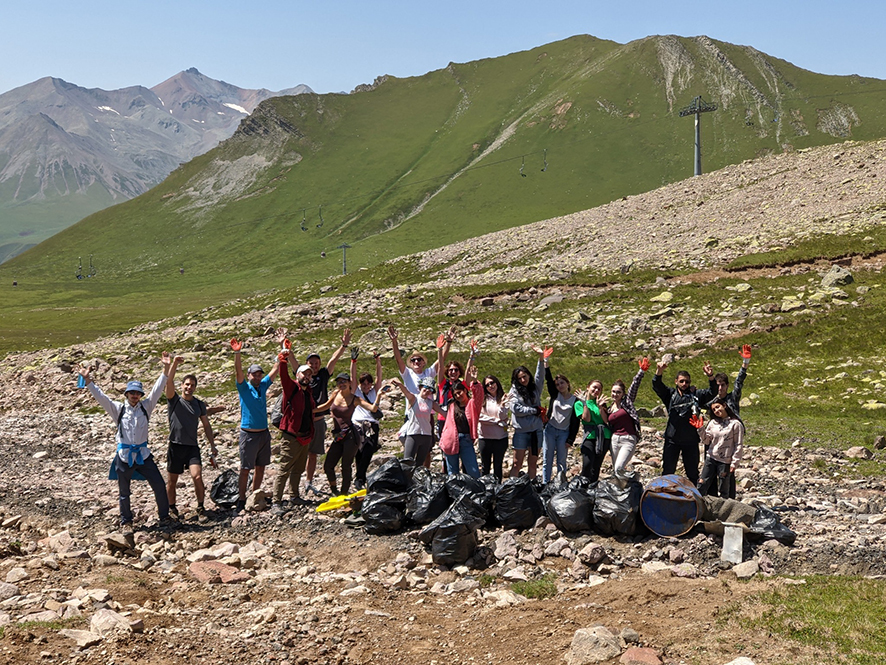
What inspired you to develop Sadagi?
We started Sadagi in May 2021 following Eka’s (my wife and life partner of over 30 years) and my return to Georgia in November 2020. I had observed with greater intensity than before, as a short-term visitor, that my homeland had made great strides since 2002, yet our communities still lacked many basic habits and attitudes. There was preparatory work which lasted for several months on the background of our adaptation to living in our homeland and starting the Video Blog About Books in December 2020, where a dozen volunteers and I reviewed useful, impactful books.
Over thirty of my friends and acquaintances responded positively to the idea of starting a not-for-profit environmental organization funded by its members. The first heated discussion, where starting the organization was decided, took place in February 2021 at our friend Luka and Tamuna’s, holiday home in Timotesubani village, near Borjomi, following a casual clean-up of the vicinity. I am blessed by having many friends and also to have met wonderful compatriots who had experience of participating in and organizing cleanups. Tako and Tata, two of my newly acquired friends and helpers, had been among the leaders of Geocell’s Movla clean-up initiative. They and quite a few other new members joined with zeal and helped in various ways. We are grateful to writer Dato Turashvili, one of the team members from the outset, for coining the organization’s name – Georgia Cleaners’ Guild (Sadagi is a Georgian abbreviation and means “a working day”). Dato also recorded the inaugural video to support the cause.
What is Sadagi’s goal, how will you achieve it, and what challenges are there along the way?
Sadagi’s purpose is to inspire and educate our citizens to turn Georgia into a clean, orderly and even more beautiful place- it’s a colossal goal. To clarify our aspirations and measure progress, we developed a project named the Georgia Cleanness Index. As a manager and a citizen deeply committed to Sadagi’s purpose, I realize that we need reliable short-term and long-term metrics of success for the team and for our citizens. Visible signs of progress are immensely motivating. Painful facts about the extent of pollution and also occasional failures, which inevitably happen, if treated responsibly, are the best teachers. Facing reality, assessing what we should have done better, and what is to be done, is paramount. Two of the primary parts of realizing Sadagi’s multi-dimensional purpose, which we have noticed clearly while working, are: alleviating polarization with unity around the common goal, and helping communities to take the ownership and responsibility for our own country and the problem of our making.
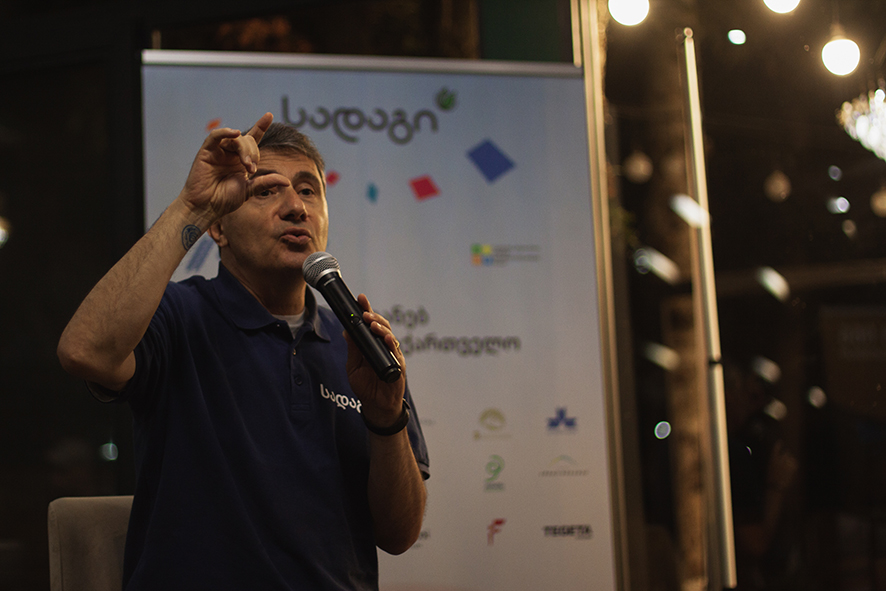
Do you link your work with the UN’s Sustainable Development Goals?
Yes. Sadagi activities are in varying degree related to the UN Sustainable Development Goals:
N6 – Clean Water and Sanitation – by cleaning the water and soil, promoting not littering;
N8 – Decent Work and Economic Growth – by helping the tourism and export industries in creating a better image of Georgia and also creating jobs;
N9 – Sustainable Cities and Communities – by engaging thousands of volunteers from various communities in cleaning up and protecting the environment;
N12 – Responsible Consumption and Production – by promoting more responsible consumption;
N13 – Climate Action – by promoting general environmental awareness and by planting trees (non-core activity which we also pursue);
N16 – Peace, Justice and Strong Institutions – by promoting unity and reducing polarization of the society.
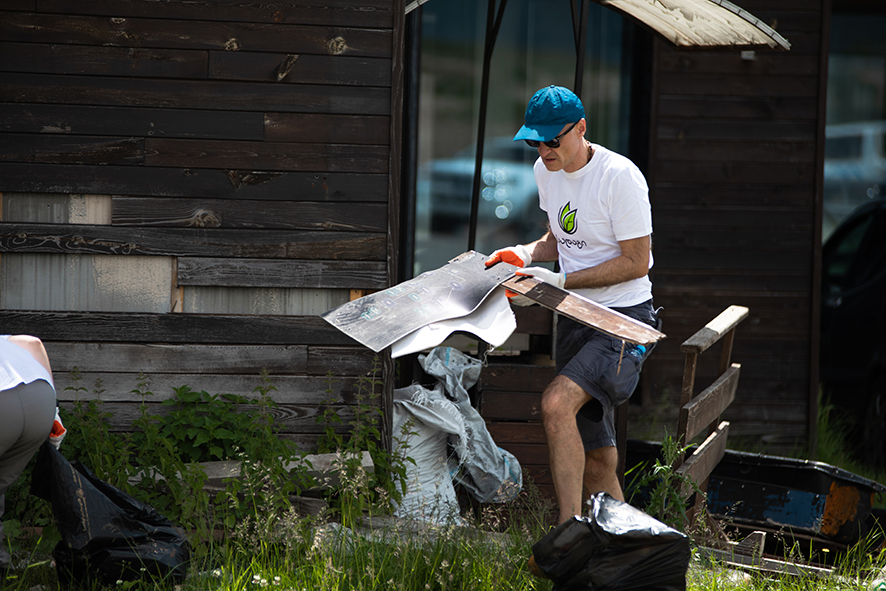
You have celebrity supporters like Katie Melua. How did you involve them and has it helped boost interest?
Katie is a wonderful person whom I have known for more than 15 years. Living in London was a privilege which united me with many gifted, purposeful and good-hearted people – British, Georgian and international. Katie embraced the idea immediately and became a founding member in summer 2021. Last summer, while visiting Georgia for the first time after giving birth to her first baby, Katie, her family and visiting friends from London contributed to a cleanup in Kiketi. Katie’s parents Alex and mother Tamara are also our good friends and avid supporters of Sadagi.
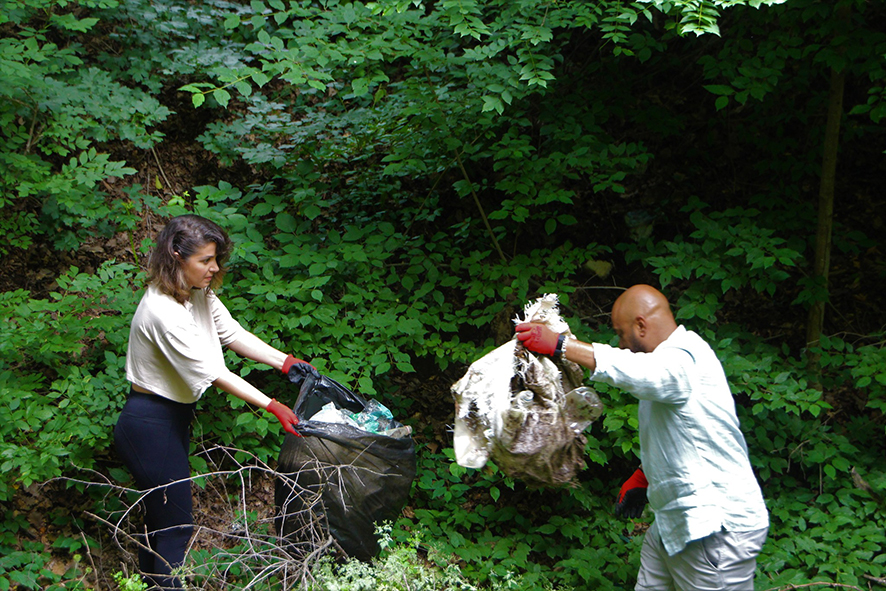
In 2023, you ran a project involving school clean-ups led by pupil groups. Is that something that could become long-term?
This is a project of which I am very proud. The first stage involved over 1000 pupils in 24 schools located in 11 municipalities in Samegrelo, Shida Kartli, Kvemo Kartli, Kakheti, Tbilisi and Samtskhe-Javakheti. Our partners, Team of the National Teachers’ Award, and leader teachers that were nominated for the award, were instrumental to making it happen. We have a nice collaboration, which warms my heart, really.
We conceived this project as a multi-year activity run in several stages each. It is to run each year from September to July. In the first year we culminated on June 5, World Environment Day, with over 100 schools in all municipalities of Georgia participating. We were happy to hear that many other teachers and schools were expressing an interest. The next round of cleanups was held in November. Many of the schools joining stage 2 were those that have been partnering with the USAID Civic Education Program. The teachers and pupils who ensured the success of stage 1 and various other schools, inspired by the trailblazing teachers, also joined us.
How would you rate your achievements?
It is not easy to rate ourselves. Sadagi’s progress should be measured in various dimensions, such as: engagement of volunteers; support by various communities, including donations from individuals and businesses; number and breadth of activities carried out; number and depth of engagement of followers; and most importantly – the impact on the environment of Georgia and change of the public attitude towards keeping our beautiful country clean. The last two are the most difficult to measure.
It seems we have done okay in most of these directions:
3000+ volunteers have participated in the cleanups;
Sadagi has conducted over 40 activities, mostly cleanups some of which have lasted for two and three days, in almost all regions of Georgia;
We have collected over 400,000 liters of litter;
We have received considerable support from over 100 members and non-member contributors;
7000+ people follow Sadagi’s social media pages;
Maia, the Sadagi communications manager, has circulated hundreds of photos and videos which have received hundreds of thousands of impressions. 100+ videos of people from different professions have been shot by David, Sadagi Director, raising awareness regarding environmental issues.
These are results of the first three years, which have been achieved by two full time staff, two part-timers and a dozen volunteer administrators. Our team has just added a manager experienced in the not-for-profit sector, and one part-timer has moved to a full-time position. The growth of donations, sponsorships and membership fees in December and January has been very encouraging. But these are still early days. A charity organization such as Sadagi is capable of rapid growth. My recent transformation from a part-timer into a full-timer Chief Cleaner will help. I find this work extremely invigorating.
What’s next for Sadagi?
Currently, we are focused on continuing the project with teachers and pupils, continuing regular cleanups with companies and volunteers all across Georgia, and improving various parts of administration. The nearest new objectives are to make two projects happen – the Georgia Cleanness Index and another large project which we are developing with a partner commercial organization. Much more will follow. Stay tuned.
Together, to the best of our abilities!
Interview by Katie Ruth Davies

